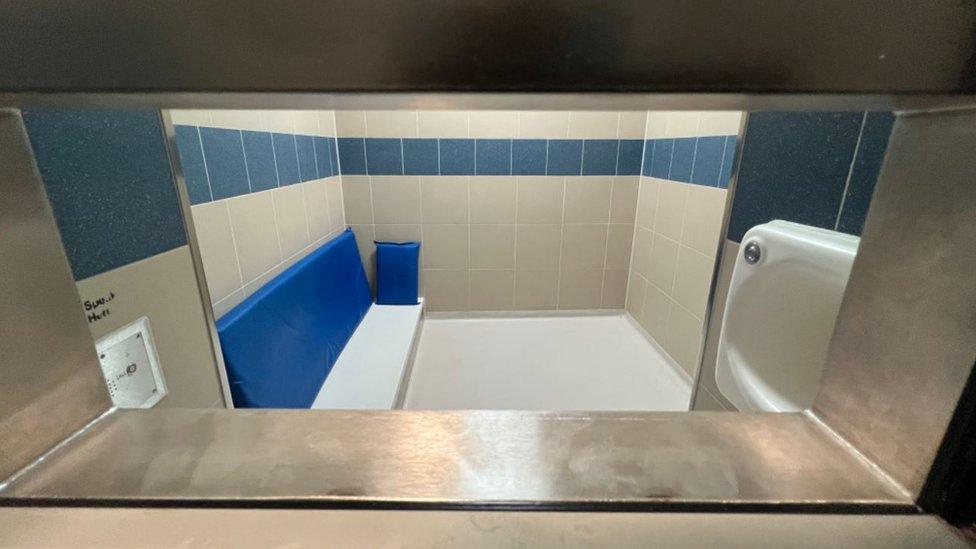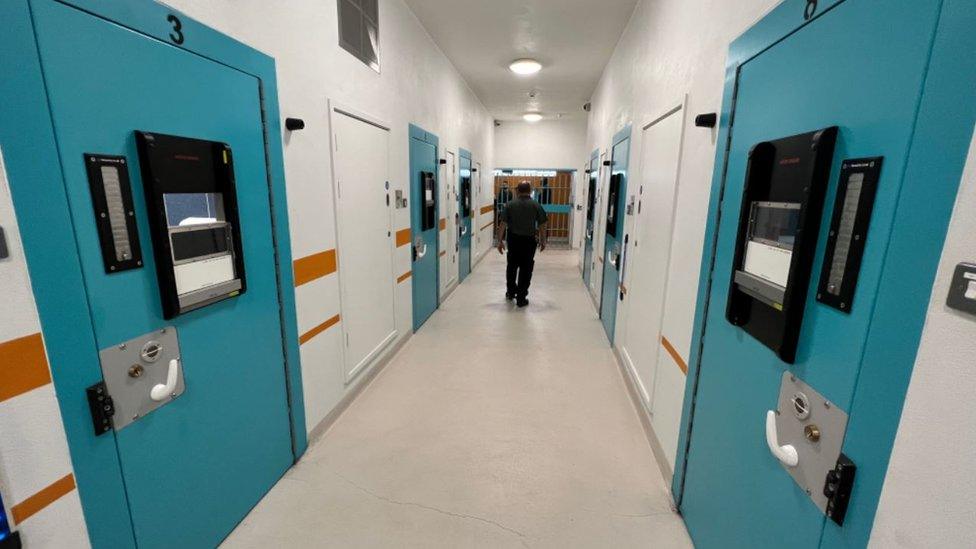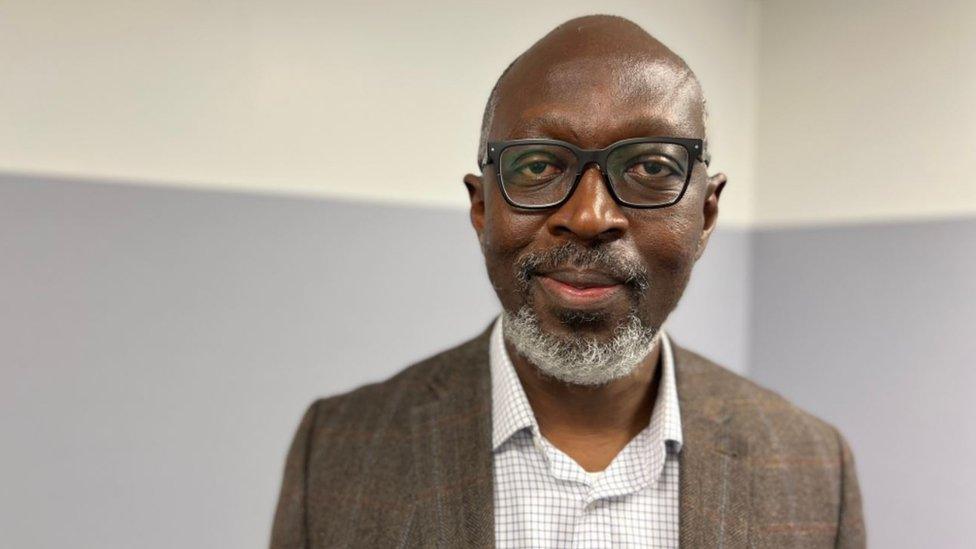Northamptonshire Police hopes to cut reoffending in child detainees
- Published

Some of the cells have been redesigned to better accommodate children
A police force hopes a new approach to dealing with children taken into custody will cut reoffending rates.
Northamptonshire Police said a significant number of the up to 70 children it detains each month have experienced a traumatic event.
Staff have received special training, some cells have changed and the force will provide mental health support.
Ch Insp Julie Mead said: "We are now recognising that trauma can have lasting adverse effects on a child."
Officers at the force's custody suite in Kettering have been trained to become "trauma-informed".
It means it should prevent them from replicating traumatic experiences and adding to the "chronic stress" of child detainees, she said.

Officers at the force's custody suite in Kettering have been trained to become "trauma-informed"
Ch Insp Mead said: "A lot of young people's mental health and neurodiverse conditions are now understood.
"So we know how to deal with the issue each young person has but we're getting the experts in to take that journey further with them and work with them outside of custody.
"In the longer term it'll reduce that demand because they are not in that reoffending cycle."
The cells have also been redesigned to including blackboard paint on the cell wall so detainees can chalk and express themselves by drawing.
Detainees can also bounce a small rubber ball against the walls to calm and regulate the nervous system.

Richard Amponsah said the organisation was also working with schools on early intervention
Those in custody will also be offered support from a mental health team from Northamptonshire Healthcare NHS Foundation Trust (NHFT).
Richard Amponsah from NHFT said: "The thing we definitely don't want to do is to make it worse.
"We work in a way that recognises their past traumas and sees them as individual children first and offenders second."
He said it was "never too late" to help with a child's trauma or highly stressful past experience.
"Of course the earlier the better, but at every stage we want to be there on their side offering mental health support," he added.

Find BBC News: East of England on Facebook, external, Instagram, external and Twitter, external. If you have a story suggestion email eastofenglandnews@bbc.co.uk, external
Related topics
- Published12 November 2021
